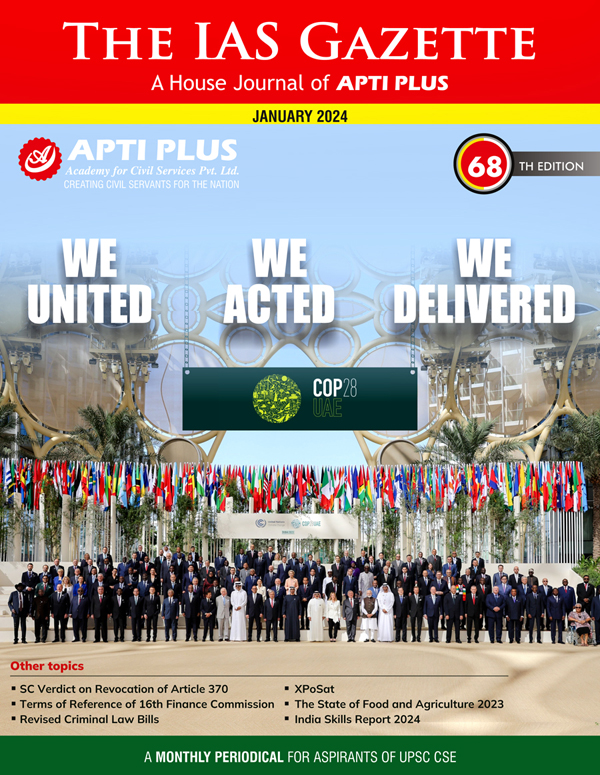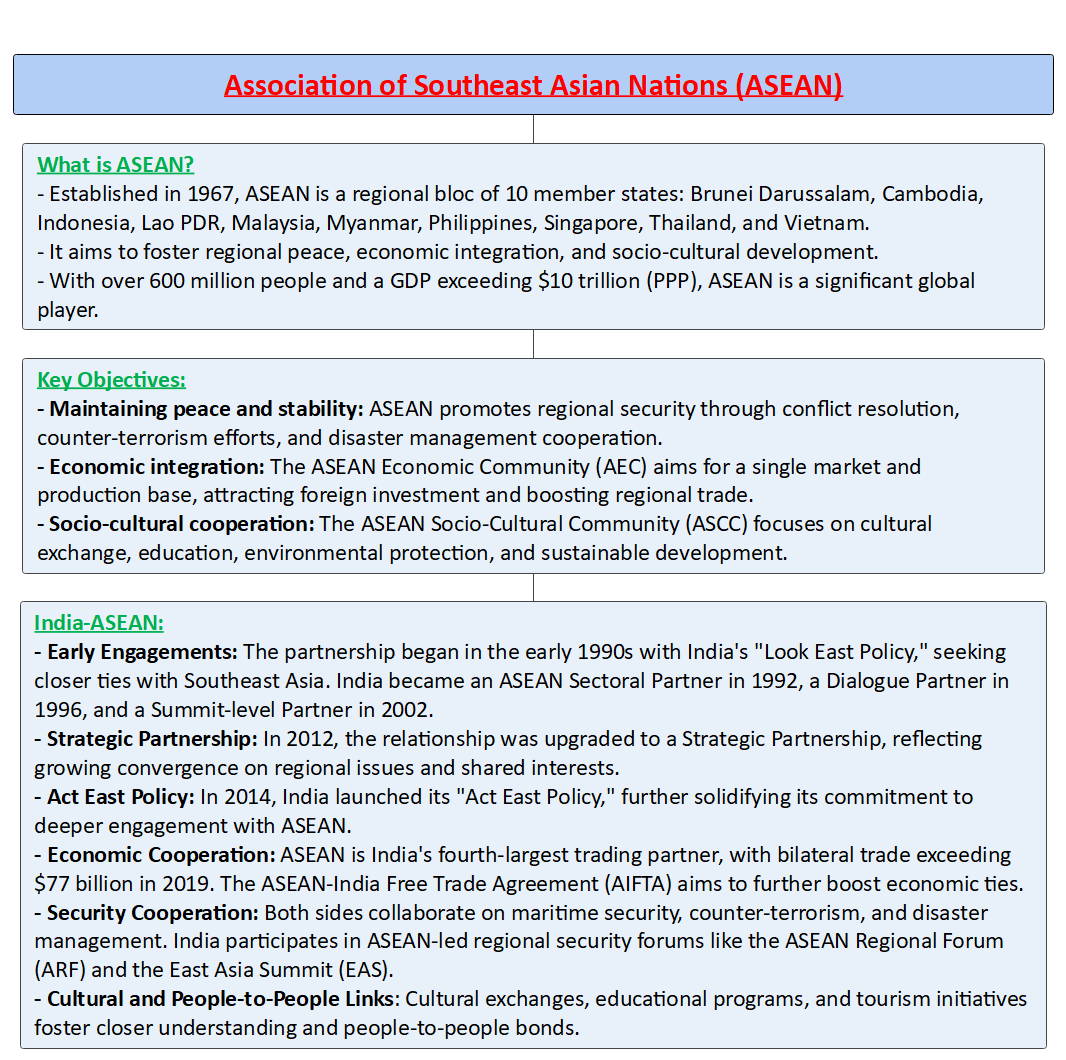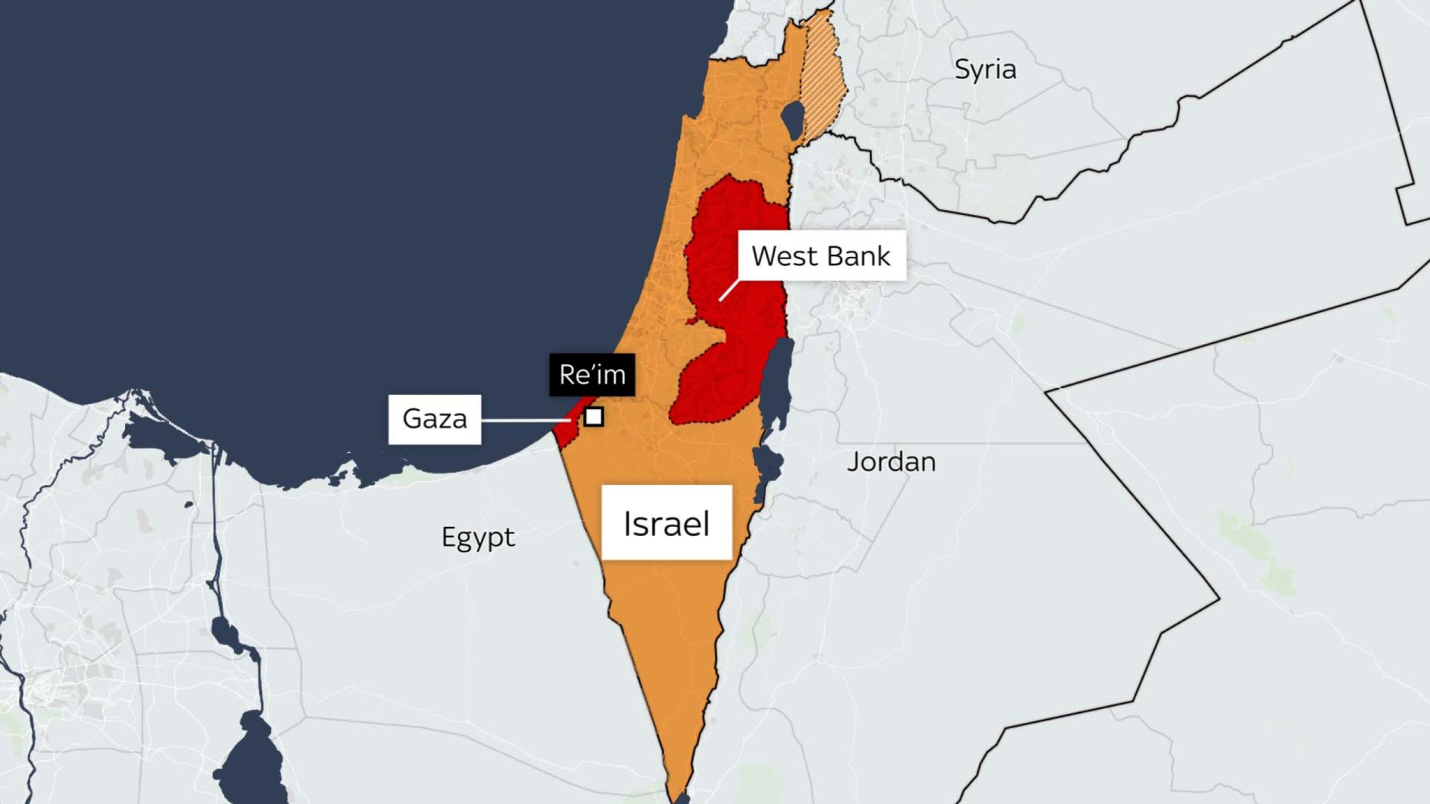Description

Copyright infringement not intended
Picture Courtesy: https://www.analyticsvidhya.com/blog/2024/02/asean-releases-ai-governance-guide/
Context: The AI governance and ethics guidelines from ASEAN advocate a flexible and voluntary approach, emphasizing ethical and responsible AI development to balance risks and benefits, ultimately fostering economic growth and innovation in the region.
Details
- The ASEAN Guide on AI Governance and Ethics sets out a unique vision for managing artificial intelligence in Southeast Asia. Unlike stricter regulatory frameworks emerging elsewhere, the ASEAN approach prioritizes flexibility, collaboration, and voluntary adherence to ethical principles.

Key Highlights of the Guidelines
Core Principles
- Transparency and Explainability: AI systems should be understandable, especially regarding their decision-making processes. This fosters trust and helps mitigate risks like bias or discrimination.
- Fairness and Equity: AI should avoid amplifying societal biases and ensure fair treatment for all individuals and groups.
- Security and Safety: Measures are necessary to protect against security vulnerabilities and ensure the safety of humans interacting with AI systems.
- Robustness and Reliability: AI systems should be reliable and function as intended, minimizing potential harm from errors or malfunctions.
- Human-centricity: Humans should remain at the centre of AI development and deployment, ensuring responsible use and control.
- Privacy and Data Governance: Respect for individual privacy and responsible data collection, storage, and usage are crucial.
- Accountability and Integrity: Mechanisms should be established to hold developers and users accountable for ethical and responsible AI practices.
Key Features
- Focus on Ethics and Responsibility: The guide emphasizes responsible AI development, highlighting principles like transparency, fairness, accountability, and human-centricity. This aims to minimize risks associated with AI, such as bias, discrimination, and privacy violations.
- Light-Touch Regulation: Unlike stricter regulations seen in other regions, the guide avoids imposing mandatory rules. Instead, it offers recommendations and best practices for governments and companies to implement at their discretion.
- Business-Friendly Approach: Recognizing the potential economic benefits of AI, the guide encourages its adoption without unnecessary hurdles. This aims to foster a thriving AI ecosystem in Southeast Asia, attracting investments and driving innovation.
- Respect for Cultural Diversity: Given the diverse legal systems and cultural contexts within ASEAN, the guide allows for flexibility in implementation. National governments and companies can adapt the recommendations to their specific needs and contexts.

Potential Implications
- Harmonization within ASEAN: The guide could create a common understanding of responsible AI practices across the region, facilitating collaboration and knowledge sharing. This could lead to more consistent approaches to AI development and deployment across member states.
- Faster AI Adoption: The voluntary nature and flexibility might encourage companies to invest in and deploy AI technologies more readily. This could accelerate AI adoption and its positive impacts on various sectors like healthcare, finance, and agriculture.
- Challenges in Enforcement: The voluntary nature also raises concerns about its effectiveness in addressing potential risks. Without mandatory rules, ensuring adherence to ethical principles might be challenging. This could lead to uneven implementation and potential misuse of AI technologies.
Further Considerations
- National Adaptation: How individual ASEAN countries will adapt and implement the guide remains to be seen. Some might adopt stricter regulations, while others might rely more on self-regulation from companies.
- Long-Term Effectiveness: The long-term effectiveness of the guide in mitigating potential risks and ensuring responsible AI development requires monitoring and evaluation.
- Stakeholder Collaboration: Continual engagement and collaboration between governments, businesses, and civil society is crucial to ensure the responsible development and deployment of AI in Southeast Asia.

Conclusion
- The ASEAN AI Governance and Ethics guide represents a unique approach to regulating AI. Its emphasis on flexibility, ethics, and economic growth could lead to a thriving AI ecosystem in the region, while the voluntary nature poses challenges in ensuring its effectiveness. Its success will depend on how individual countries adapt it and how stakeholders collaborate to address potential risks and maximize the benefits of AI.
Must Read Articles:
EUROPEAN UNION’S ARTIFICIAL INTELLIGENCE ACT: https://www.iasgyan.in/daily-current-affairs/european-unions-artificial-intelligence-act#:~:text=The%20EU%20rules%20are%20expected,threaten%20people%27s%20safety%20and%20rights.
EUROPE'S MOVE FROM AI REGULATION TO INNOVATION ADVOCACY: https://www.iasgyan.in/daily-current-affairs/europes-move-from-ai-regulation-to-innovation-advocacy
|
PRACTICE QUESTION
Q. While some argue for harmonized global regulations to avoid fragmentation and unfair competition, others emphasize national sovereignty and the need for tailored approaches based on specific cultural and legal contexts. How to achieve a balance between these competing pressures and ensure responsible AI development on a global scale?
Answer Structure:
1.Introduce the core question and the two opposing views on global AI regulation.
2.Explain the benefits and challenges of harmonizing AI standards across countries and regions.
3.Explain the benefits and challenges of allowing national or local variations in AI governance.
4.Evaluate the trade-offs and tensions between these two approaches and propose some criteria or principles for finding a balance.
5.Conclude with a summary of the main points and a recommendation for future action or research.
|

















